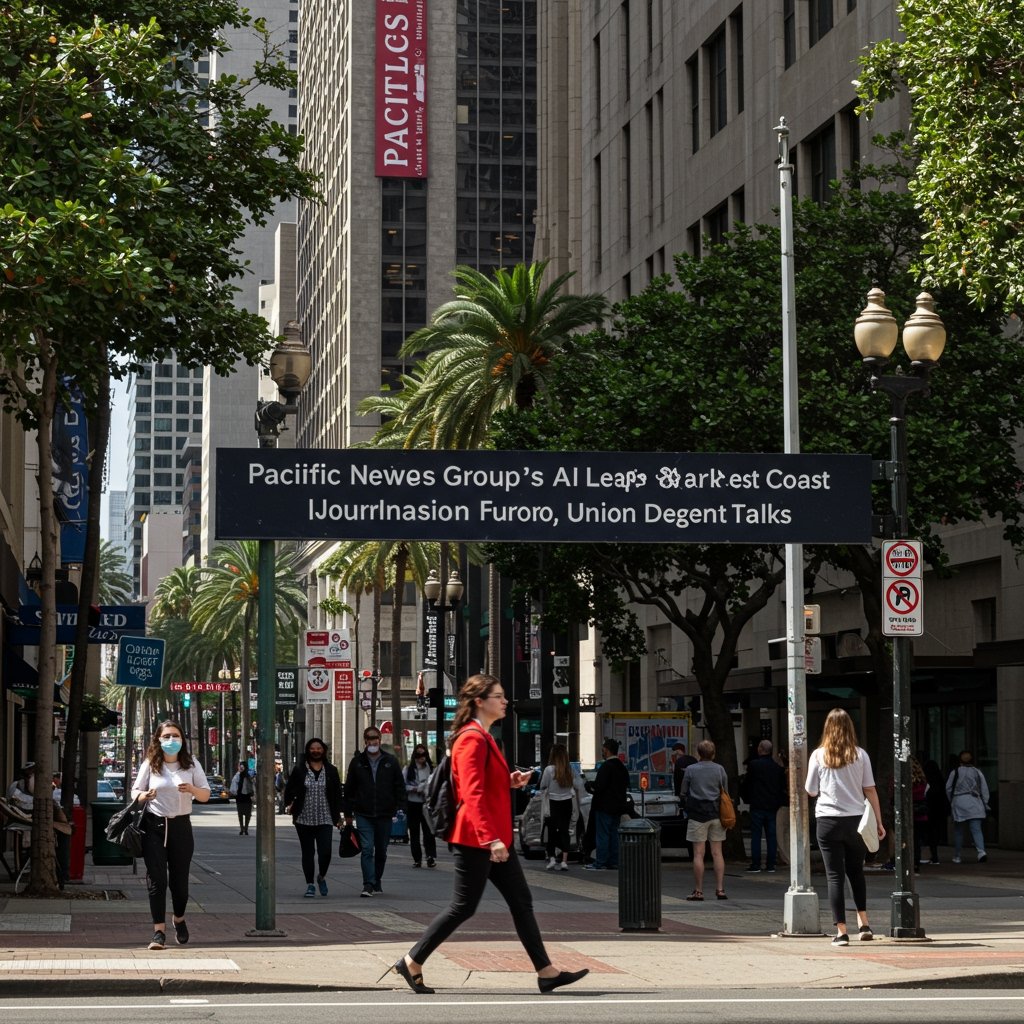Pacific News Group Announces Major AI Integration
Seattle, WA – Pacific News Group (PNG), a significant media consortium with a vast operational footprint spanning California, Oregon, and Washington, declared on February 10, 2025, a sweeping integration of artificial intelligence tools throughout its core editorial workflows. The ambitious initiative is framed by PNG leadership as a critical strategic move aimed at enhancing operational efficiency, streamlining content production processes, and delivering more personalized news experiences to readers across its diverse portfolio of publications.
PNG executives have touted the AI integration as a means to free up journalists’ time from repetitive tasks, allowing them to focus on more in-depth reporting and analysis. Potential applications mentioned include using AI for automated transcription, preliminary data analysis, identifying trending topics, and assisting with headline generation and content optimization. The group also suggested AI could play a role in tailoring news feeds and content recommendations to individual reader preferences, theoretically increasing engagement and relevance in a competitive media landscape.
Immediate Backlash from Newsrooms
However, the announcement was met with immediate and vocal opposition from journalists and editors working across PNG’s numerous newsrooms. Concerns quickly surfaced regarding the potential ramifications for job security, the future role of human journalists, and the safeguarding of editorial independence and the quality of news reporting.
Across California, Oregon, and Washington, newsroom staff expressed anxieties about the extent of AI implementation and its potential to displace human labor. Many fear that relying heavily on automated tools could lead to a reduction in the number of reporting and editing positions, particularly in local news where resources are already often stretched thin. There is also palpable concern that the nuances, ethical considerations, and community knowledge essential to quality journalism cannot be replicated by algorithms.
West Coast Journalists Guild Responds Forcefully
The most significant organized response came swiftly from the West Coast Journalists Guild. This prominent labor union, which represents thousands of PNG employees across the three states, issued a formal statement on February 12th, just two days after PNG’s announcement. The Guild’s statement articulated profound concern over the lack of prior consultation regarding such a fundamental shift in operational strategy and its potential impact on the workforce and journalistic standards.
The Guild’s primary points of contention revolve around the potential for significant job losses as AI systems take over tasks traditionally performed by journalists and support staff. Furthermore, they raised alarm bells about the potential for AI to compromise editorial integrity, fearing that algorithmic prioritization could dictate news coverage based on engagement metrics rather than journalistic merit or public interest. Concerns about the accuracy, fairness, and transparency of AI-generated or assisted content were also highlighted.
In their statement, the West Coast Journalists Guild formally requested urgent negotiations with Pacific News Group leadership. The union set a firm deadline of February 28th for these discussions to commence, emphasizing the critical need to address their members’ anxieties and establish clear guidelines and safeguards regarding the implementation and use of AI technologies within PNG newsrooms.
A Critical Test Case for Regional News
This unfolding situation at Pacific News Group is being widely viewed as a critical test case for the broader regional news publishing industry on the West Coast and potentially nationwide. As media organizations increasingly explore and adopt artificial intelligence to navigate economic challenges and evolving consumption habits, the clash between technological advancement and the concerns of the human workforce is becoming more pronounced.
Industry analysts note that the outcome of the negotiations between PNG and the West Coast Journalists Guild could set a precedent for how AI is integrated into news operations, particularly concerning labor relations, ethical guidelines, and the preservation of journalistic quality in local and regional reporting. The rapid timeline from announcement to union demand underscores the urgency felt by employees facing this technological transformation.
Journalists and media observers are closely watching whether PNG will engage constructively with the Guild’s demands and how the balance will be struck between leveraging AI for efficiency and maintaining the human-centric, independent, and high-quality journalism that is vital for informed communities. The resolution of this dispute will likely influence similar discussions and implementations across the media landscape as AI becomes a more pervasive tool.



















